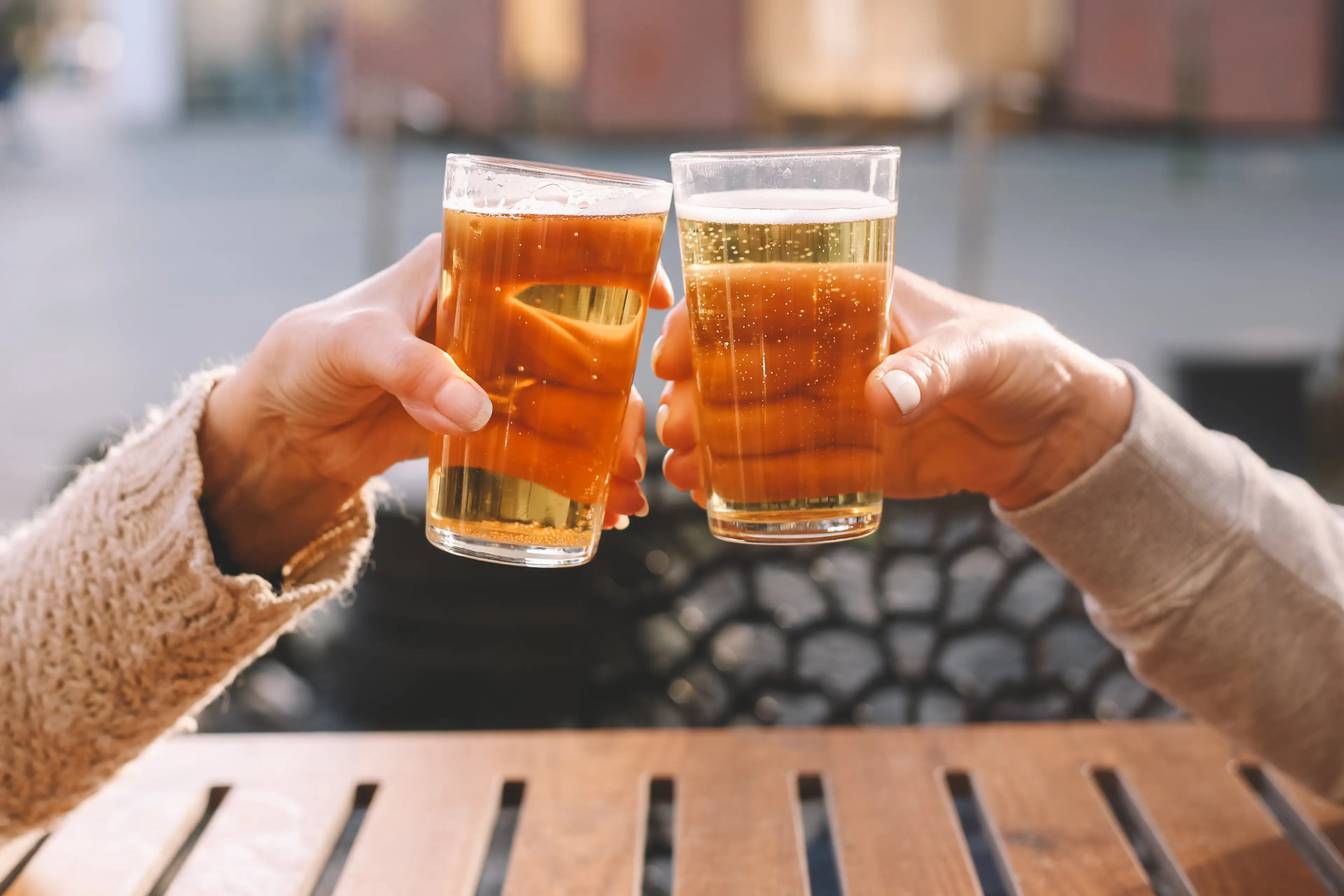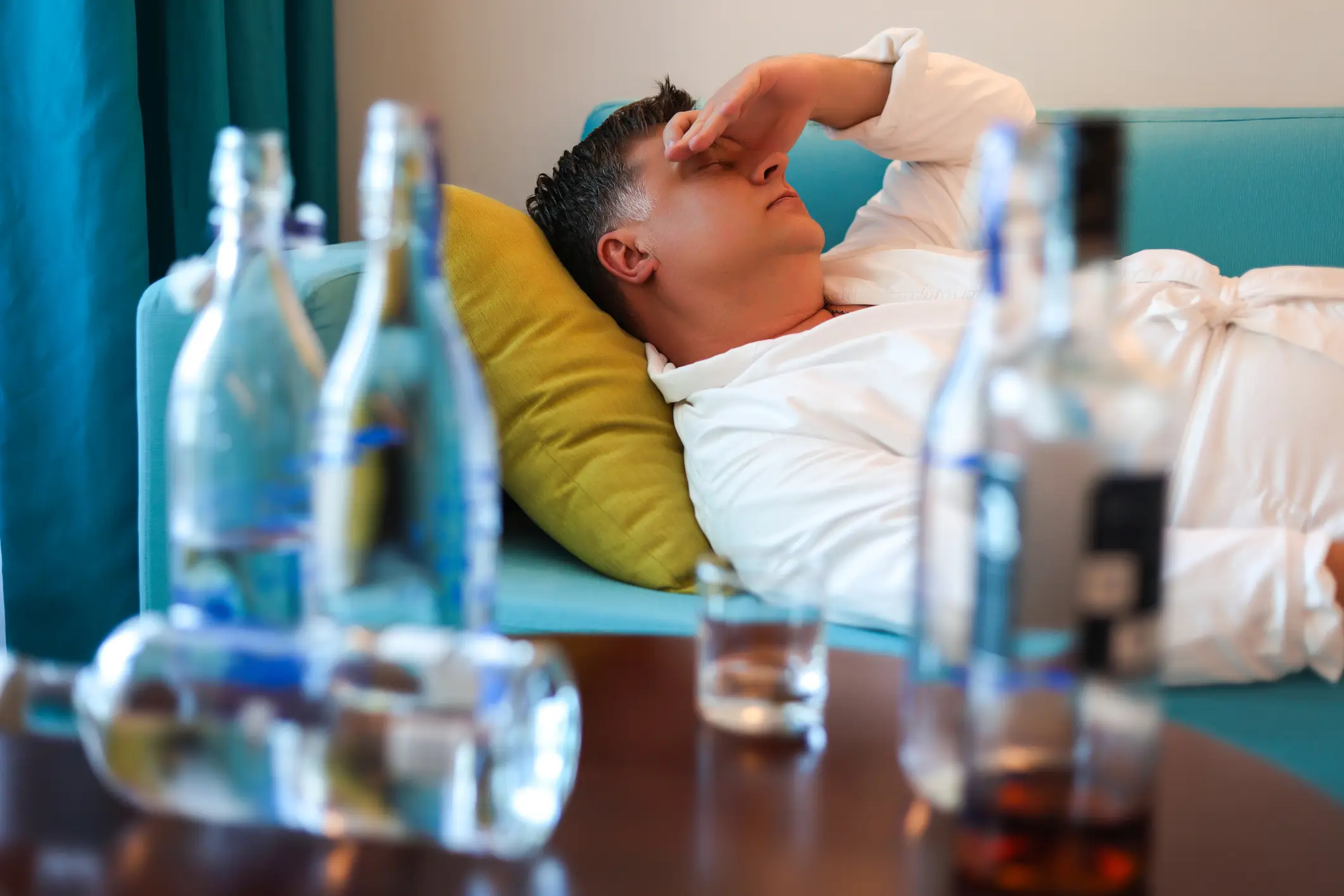
Alcohol is perhaps the world’s most popular vice. We all know it isn’t do us any good, and moderation is key if you’re hoping to enjoy it with minimal negative effects on your wellbeing.
The NHS recommends that we consume no more than 14 units each week, with those ideally being split across three or more days. A small glass of wine is about one unit, as is half a pint of beer or cider, and if you want to be very lab-specific about it then it amounts to 10ml of pure ethanol.
A unit handily works out to the amount of alcohol the human body can process in one hour. In other words, if you drink one unit’s worth – let’s say half a pint – then it should be processed by your system in just an hour.

Advert
Speaking to Women’s Health, GP Dr Bhavini Shah said: “There are additional factors that contribute to how long alcohol remains in your system, depending on your metabolic rate, such as your weight, height, gender and body composition.”
In other words, take the one-unit-per-hour rule with a pinch of salt. She explained that studies have shown that women produce less of the alcohol-processing enzyme – alcohol dehydrogenase – than men, too. “This allows a greater proportion of the alcohol to potentially reach other organs, exposing them to the toxic effects of alcohol,” she said.
Sorry, ladies.
Anyway, on to the meat of the matter. Dr Shah went on to explain what happens within the body with each additional unit of alcohol imbibed. This is based on alcohol consumed within one sitting, so bear that in mind. Again, the NHS recommends a 14 unit per week limit, and those should be consumed across at least three days.
Let’s get into it.
1 to 2 units
Let's kick off with up to one pint of lower-percentage beer, which will have an effect on your body despite its seemingly modest amount.
“One or two units of alcohol increases the heart rate, expands blood vessels, and gives a slight ‘buzz’ which commonly makes people feel more sociable or talkative,” explained Dr Shah. So far, so good.

4 to 6 units
“After four to six units, alcohol begins to impact your nervous system, decreasing reaction time and affecting areas of the brain associated with decision making, resulting in poorer judgement and potentially more reckless behaviour,” she continued. These effects may well kick in earlier than that, and it’s important to remember that any amount of alcohol can affect your reaction speed and concentration. The legal driving limit in the UK amounts to around three units for women and four units for men (although this varies depending on a number of factors like weight and metabolism) but, for maximum safety for both yourself and those you encounter on the road, please don’t drive after any alcohol consumption.
8 units
By this point, you’ll likely be feeling pretty squiffy, but let's see what that looks like in more medical terms. “After eight units, your vision and sleep will be affected and you will have consumed more alcohol than your liver can process in one night, resulting in a hangover,” said Dr Shah. Sleep is actually affected by having any amount of alcohol in your system as it suppresses the REM phase. If you want a good night’s kip, steer clear of the booze.
10 units
Five pints later and you’ll almost certainly need an ambulance. “After ten units, your coordination will be highly impaired and you can expect symptoms of nausea, diarrhoea, and vomiting, as well as dehydration and headaches,” said Shah. Anyone else reckon those are likely to kick in five units earlier, or am I just a lightweight?

12 units
This is around the six-pint mark, depending on how strong your drink is, and it might start to not look so pretty.
“After 12 units, you are at great risk of alcohol poisoning,” Dr Shah warned.
- Of course, everyone's different, and alcohol poisoning can range from mild to severe, but according to DrinkAware symptoms may include: confusion; severely slurred speech; loss of co-ordination; vomiting; irregular or slow breathing; pale or blue-tinged skin cause by low body temperature; being conscious but unresponsive; passing out and being unconscious; and even loss of bladder or bowel control.
If you experience these conditions, seek medical attention as soon as possible.
